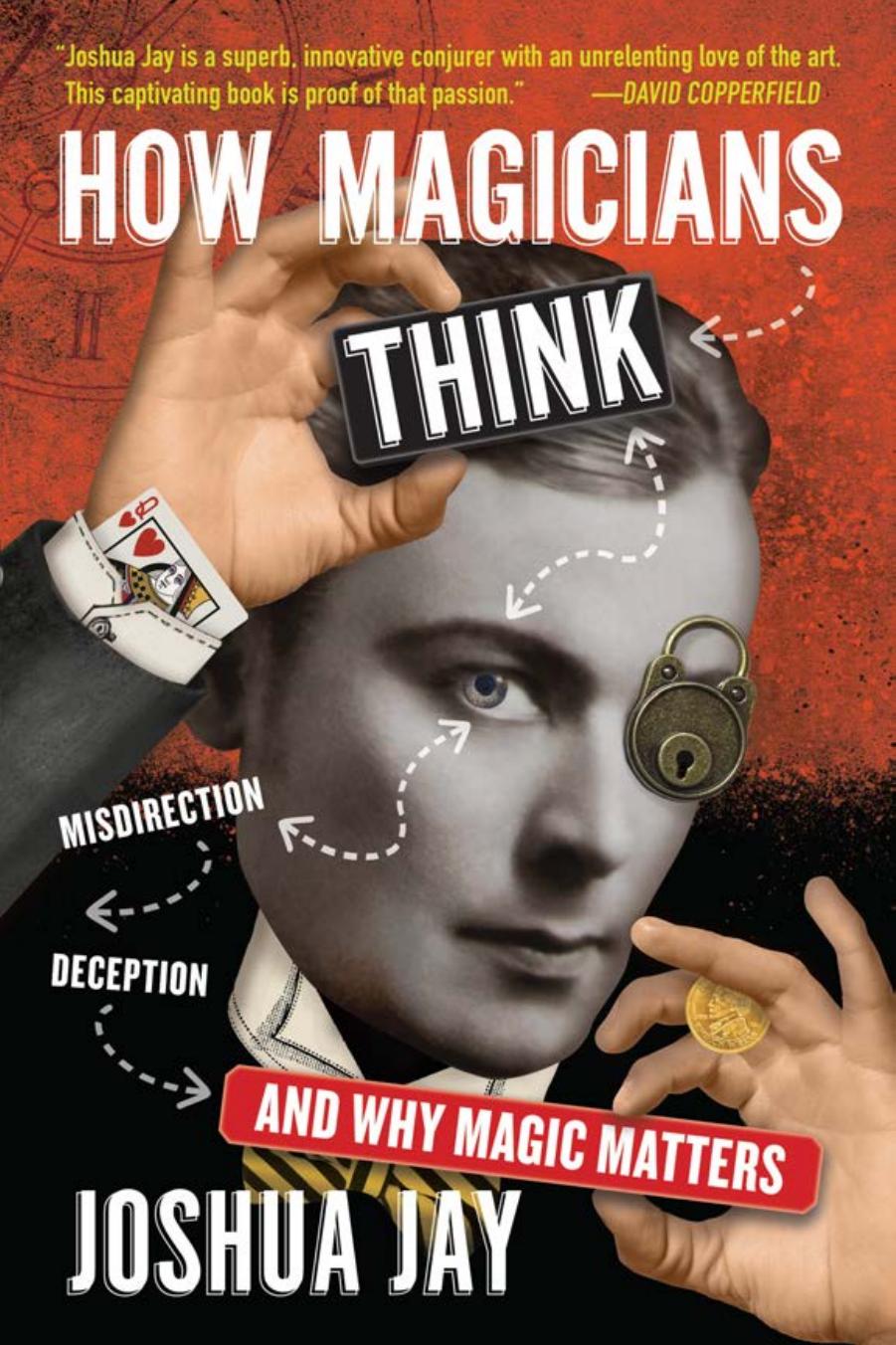How Magicians Think: Misdirection, Deception, and Why Magic Matters by Joshua Jay

Author:Joshua Jay
Language: eng
Format: epub, pdf
Publisher: Workman Publishing
Published: 2021-06-15T00:00:00+00:00
28
Is magic art?
That is the mission of true artâ
to make us pause and look
at a thing a second time.
âOscar Wilde, Poet, Playwright
⦠⦠â¦
I have vivid memories of the first magician I saw as a child. The year was 1988, and the location was my basement. Mike Bishop, a popular local magician, performed at my seventh birthday party. Iâve forgotten the tricks he did that day, but I remember vividly how I felt. Details might fade from the mind, but magic embeds emotion in memory.
Yet when people see most magicians, their experience falls well short of profound. âThe great tragedy of twentieth-century magic,â says Max Maven, one of the industryâs most prolific creators, âis that magicians have taken an art form that is inherently profound and rendered it trivial.â Most magicians present their tricks as puzzles designed to confuse. And if youâre even a little confused, you canât be amazed.
YouTube is filled with clips of people performing simple tricks for their dog or toddler. Thereâs a YouTube clip with more than thirty million views where an orangutan is stumped by a zoo handler who vanishes a large nut. The orangutan stares blankly for a moment, then falls backward laughing. The reaction is indistinguishable from a humanâs reaction to being fooled. It will melt your heart.
But it is not art.
At least not in my eyes. For magic to be magic, it has to deceive. For magic to be art, a magician has to make you feel an intense emotion. Thereâs usually a point of view or evidence of a narrative. And there must be a feeling that this magician is the only one who could have presented her material in this way. Producing a dove onstage is just a trick, but the narrative is the creation of life. When Penn & Teller burn and restore an American flag, we experience a range of emotions. Weâre fooledâsureâthatâs what makes it a magic trick. But weâre intrigued and engaged, and then reflective about what weâve just watched.
And the narrative need not be trick specific. I have teared up watching Mahdi Gilbert, a friend and fellow magician, perform flawless but straightforward card magic. Mahdi was born without hands and feet and has learned to use the webbing of his appendages to shuffle, deal, and do exceptional sleight of hand. For me, the experience of watching a magician excel without fingers is a spiritual experience. Iâm humbled and grateful to be in his presence. The narrative of his show is the self-evident story of his life.
The very best magic asks us to look at something we know and see something new. But the meaning has to sneak up on the viewer, and a delicate touch is essential. Most magic shows start with a bang. You have to impress before you can suggest. The right to tell an audience a storyâto transport themâhas to be earned. Author Philip Pullman suggests that stories must begin in delight and end in truth: âIf you start with what you think is truth, youâll seldom end up with delightâit doesnât work that way round.
Download
How Magicians Think: Misdirection, Deception, and Why Magic Matters by Joshua Jay.pdf
This site does not store any files on its server. We only index and link to content provided by other sites. Please contact the content providers to delete copyright contents if any and email us, we'll remove relevant links or contents immediately.
| Dance | Individual Directors |
| Magic & Illusion | Reference |
| Theater |
Call Me by Your Name by André Aciman(20515)
Ready Player One by Cline Ernest(14675)
How to Be a Bawse: A Guide to Conquering Life by Lilly Singh(7486)
Wiseguy by Nicholas Pileggi(5783)
The Kite Runner by Khaled Hosseini(5178)
On Writing A Memoir of the Craft by Stephen King(4943)
Audition by Ryu Murakami(4930)
The Crown by Robert Lacey(4814)
Call me by your name by Andre Aciman(4682)
Gerald's Game by Stephen King(4654)
Harry Potter and the Cursed Child: The Journey by Harry Potter Theatrical Productions(4506)
Dialogue by Robert McKee(4401)
The Perils of Being Moderately Famous by Soha Ali Khan(4220)
Dynamic Alignment Through Imagery by Eric Franklin(4216)
Apollo 8 by Jeffrey Kluger(3707)
The Inner Game of Tennis by W. Timothy Gallwey(3687)
Seriously... I'm Kidding by Ellen DeGeneres(3633)
How to be Champion: My Autobiography by Sarah Millican(3593)
Darker by E L James(3516)
